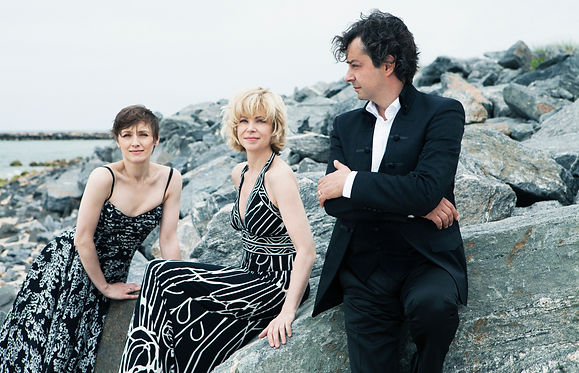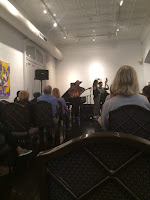 Review: Cezch Philharmonic - Semyon Bychkov
Review: Cezch Philharmonic - Semyon Bychkov
In the West, the once glorious
Czech Philharmonic has been off the map for far too long. Its instability since the Velvet revolution meant a rapid succession of stop-gap directors, none of whom left much of a mark (see
wiki entry). Aside from continual close performing and recording ties with Japan, its profile was lower than many more stable "newly" ascendent orchestras (like the Budapest Festival under Ivan Fischer, the Russian National under Pletnev, the Mariinsky under Gergiev, the Staatskapelle Berlin under Barenboim, even Academia di Santa Cecilia under Antonio Pappano). That just goes to show the importance of a strong and visionary director.
The tide started to turn when Jiri Belohlavek resumed leadership in 2012, culminating with a Decca contract and acclaimed recordings, which were put into uncertainty in 2017 by Belohlavek's sudden passing.
Semyon Bychkov, a regular guest since 2013, was recently appointed the director (over two Czech principal guest conductors). However, although it seems Bychkov has been positively received, his Decca Tchaikovsky recordings had garnished only mixed reviews.
It has been the longest time been I heard the Czech PO, and I was ultra eager, especially since they are reported to be on the rise again. Though my expectations were largely fulfilled, they were not unmarred by question marks.
Saturday, October 27, 2018, Carnegie Hall, 8 PM
All - Dvorak with Alisa Weilerstein
I had heard
Alisa Weilerstein live twice before in Elgar and own her recordings, and thus know her well. Much of
what I said about her style still rings true for this performance. For my taste, the
Cello Concerto was just too much on the indulgent, soft and "feminine" side - tenderness abound, but there was not much muscle. What bothered me even more was her tendency to scoop a little and the mildly, perhaps intentionally applied, portamenti. To me, The Dvorak is not like the Elgar, and needs more discipline. The orchestra played beautifully, in great detail, and with great feeling.
Like the Cello Concerto, the
Symphony No. 7 was on the stately side. There are many approaches to this symphony, and obviously Bychkov preferred not to drive too hard nor rely on sheer "brilliance". Instead, he sculpted patiently and built structurally, resulting in a classically proportioned and lyrical performance. The orchestra sustained the journey, and every little detail, every little solo, was played with great insight, telling and delectable. Even if the big moments were not the "biggest", it was a winning performance.
For encores, two
Slavonic Dances were played fastidiously, models of refinement rather than oomph.
Sunday, October 28, 2018, Carnegie Hall, 2 PM
Mahler 2nd Symphony
Elizabeth Kulman, Mezzo
Christiane Karg, Soprano
Prague Philharmonic Choir
Bychkov conducted
Mahler's 2nd Symphony much as expected - patient, meticulous and, dare I say, somewhat dispassionate. Tempi were broader than usual. Again, lyricism is emphasized over grotesquerie.
The great satisfaction and anticipation derived from the previous evening was sustained for the first half of the work. The first movement's discourse was well planned out and the crescendos and climaxes well crafted. The orchestra's sonority was burnished - how the lower brass blended with the lower strings; and the fine horns and the exquisite winds. Never was there an ugly sound, which some would say is not the way for Mahler. The next three movements fared the best, Bychkov finding much beauty and fresh details, though contrast was less than usual.
As the gargantuan finale unwounded, the good feeling started to dissipate. I did not time it, but it just felt
slow - almost excruciatingly so. The
Prague Philharmonic Choir were superb in both soft and loud moments, and both soloists were excellent. However, the orchestra, particularly the brass, seemed to have tired and Bychkov seemed to be dragging things along. For me, there was little feeling of transcendence; the climaxes felt rather empty and the "resurrection" came too late.
The massive force deployed had seemed excessive for the deliverance. Perhaps I was alone, as the audience seemed wildly enthusiastic. One notes Bychkov had received almost universal praise in his performances of this piece, one of his calling cards, with many top orchestras. I'd be curious what teh NYT would say.
This was an afternoon concert and the orchestra had played a full program the previous night. I love the orchestra's sonority and wish to hear them any time. However, it did seem the CPO/Bychkov relationship would need a little more time to mature.
 Trio Solisti
Trio Solisti











